The evolution of
Frankenpost Verlag with technotrans.
The printing center of Frankenpost Verlag relies on the print-service expertise of technotrans, investing in the comprehensive renewal of its ink supply system and dampening solution preparation.
Cost-Efficient and Rapid Increase in Operational Security: To ensure reliable production for the coming years, the printing center of Frankenpost Verlag GmbH focused on modernising its approximately 25-year-old facility for dampening solution preparation and ink supply for web offset printing. technotrans SE won the contract, performing a retrofit in a short time and during ongoing operations, bringing the facility up to the latest state of technology. Today, the printing house benefits from high machine availability and operational reliability, as well as improved maintenance options
Heart of the regional press
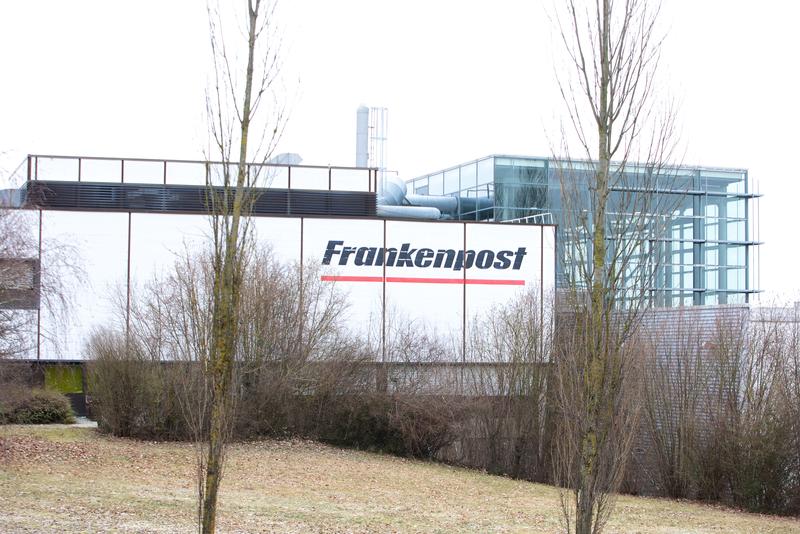
Frankenpost Verlag Hof
The versatile printing center of Frankenpost Verlag
The printing center of Frankenpost Verlag GmbH is part of the regional newspaper group Hof-Coburg-Suhl-Bayreuth and a subsidiary of Süddeutscher Verlag and Deutsche Druck- und Verlagsgesellschaft (DDVG).
The printing house produces, among others, the newspapers of Nordbayerischer Kurier, Frankenpost, and Neue Presse – totaling 90,000 to 100,000 copies daily.
Additionally, all advertising papers for the entire regional newspaper group and various printed materials for external customers are produced in the printing center, averaging around 800,000 per week.
The decision for technotrans
"Our goal was to be able to produce reliably for another 10 to 15 years – therefore, the factors of machine and spare part availability played a decisive role," says Wilfried Beiersdorf, print shop manager of Frankenpost Verlag. To achieve this, the initial internal discussion was about acquiring completely new technology. However, retrofitting the existing peripherals emerged as the most cost-efficient and fastest implementation option.
Project implementation// At the heart of the measures was the modernisation of the dampening solution preparation and ink supply system for the three web offset printing towers of the printing house. This approach consisted of two components: Firstly, technotrans replaced the complete sensor and control technology inside the machine, and secondly, the tank system was also technically updated to the current standard, with new ink supply pumps installed.
Benefits for modernisation// Thanks to the modernisation, operation is now either via a user-friendly display or comfortably remotely via PC. "It is even possible to release the fill level via an interface to the ink manufacturer," says Ulrich Meitinger, Area Sales Manager at technotrans. In addition, technotrans exchanged the ink tanks, positively impacting the logistics costs of the ink suppliers.
Challenges and solutions// The biggest challenge of the project was to carry out the entire installation during ongoing operations, thus avoiding a production interruption. "Pre-assembled modules in the factory saved a lot of time," reports Meitinger. "We were well-prepared and were able to quickly exchange all parts during assembly."
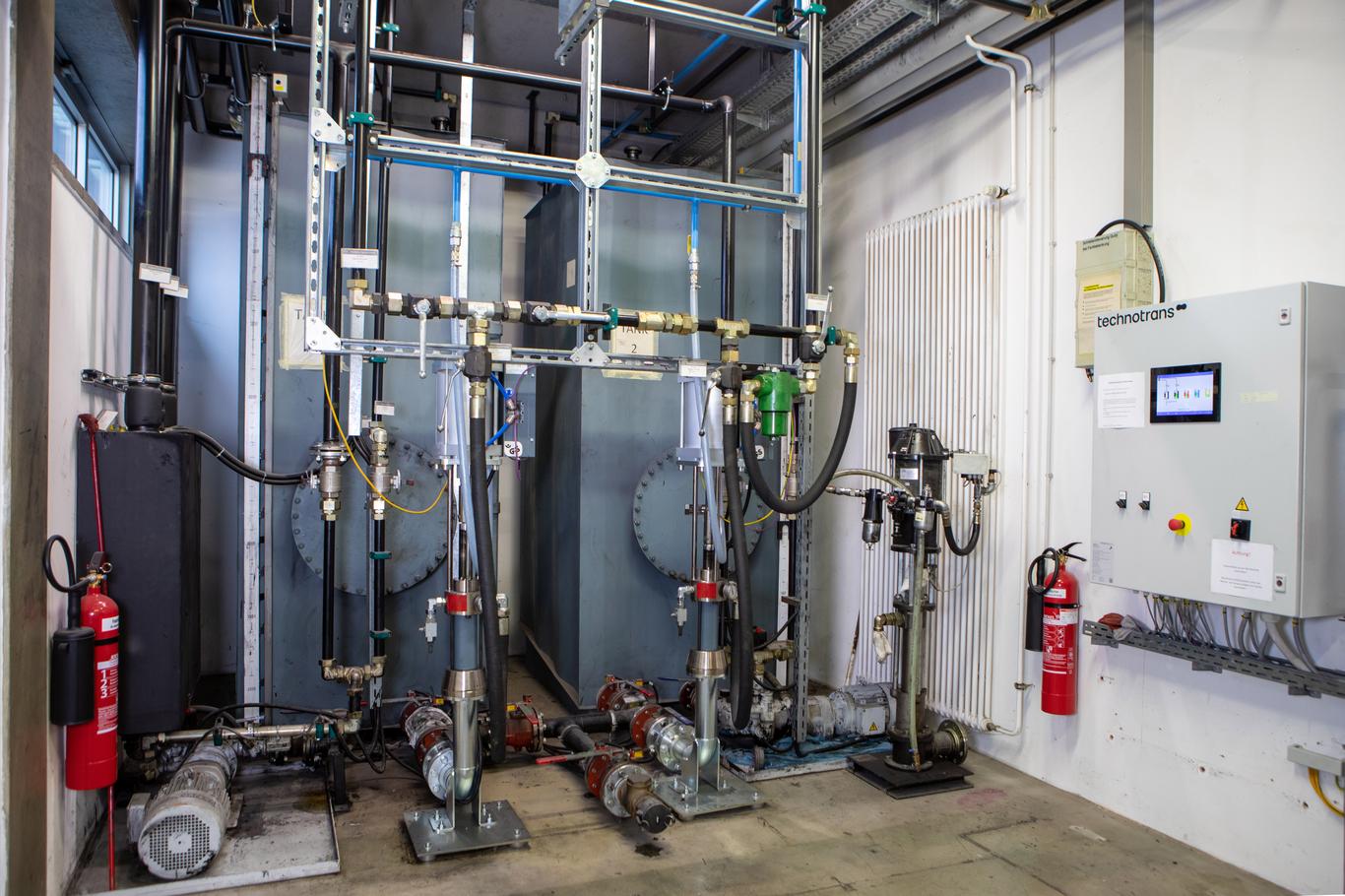
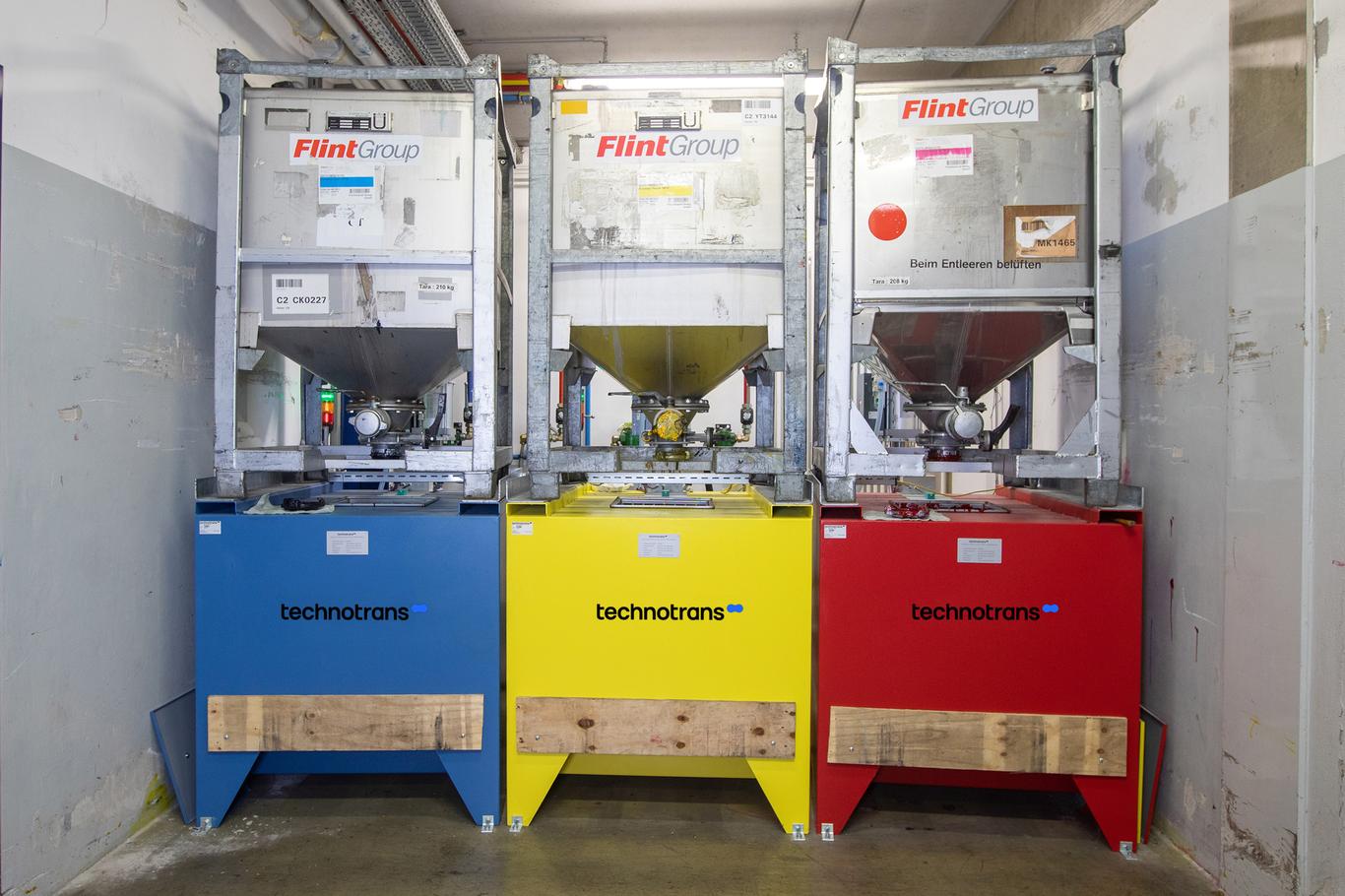
“The collaboration with technotrans
was a milestone for our operation.“
Wilfried Beiersdorf
Printing Shop Manager
at Frankenpost Verlag.
»The fact that the existing system is already from technotrans naturally played an important role.«
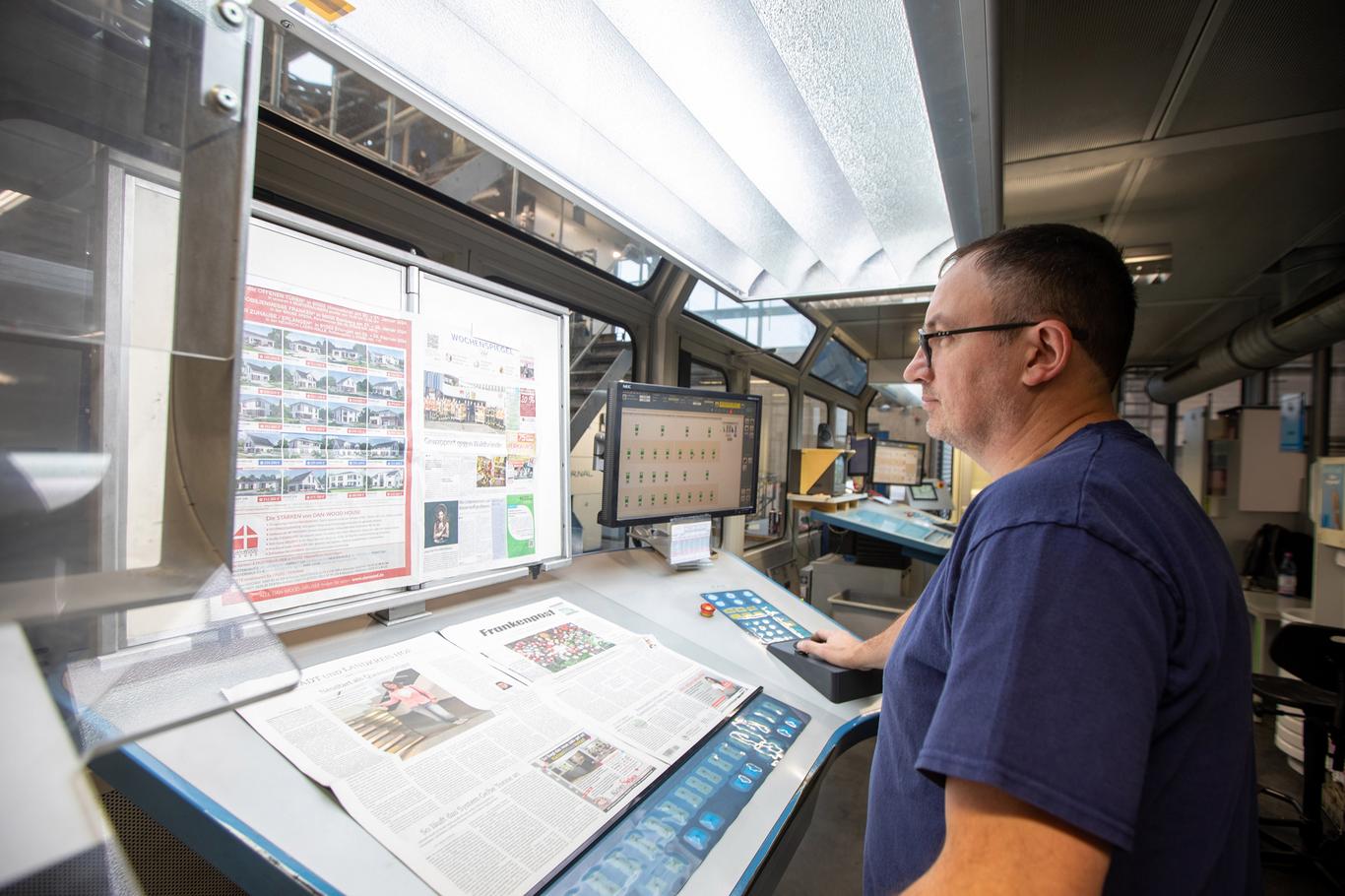
Modernisation of the core facilities
New life for printing technology
The modernisation of the dampening solution preparation and ink supply system for the three web offset printing towers of the printing house was at the heart of the measures. This approach consisted of two components: technotrans replaced the complete sensor and control technology inside the machine, as these were approaching the end of their lifecycle after more than 25 years. The new control system was connected to the new control stand technology of the machine in coordination with the control stand manufacturer. Additionally, the tank system was technically updated to the current standard, and new ink supply pumps were installed since no spare parts were available for the previously used ones. The existing cabling and piping were retained. Furthermore, technotrans exchanged the ink tanks, positively impacting the logistics costs of the ink suppliers. "Until now, we could only use 500-liter tanks, while now we use 1,000-kilogram standard containers. This saves space on the truck due to the different dimensions and thus better space utilization, correspondingly reducing delivery costs," explains Beiersdorf.
Proactive maintenance and sustainability
New network interfaces and refrigerant update
Thanks to the modernisation, the operation is now either via a user-friendly display, showing among other things the fill levels in the container, or comfortably remotely via PC. The new control technology with network interface makes this possible, says Ulrich Meitinger, Area Sales Manager at technotrans. "It is even possible to release the fill level via interface to the ink manufacturer so that they can proactively react and resupply inks at correspondingly low fill levels." In addition, the system enables condition-based maintenance by displaying the pump strokes to check their wear. For the dampening solution preparation unit, technotrans also exchanged the refrigerant. R22 was replaced with a more environmentally friendly variant with a lower Global Warming Potential (GWP value), which involved minor modifications to the system components, such as the evaporator. "Legal requirements made this step necessary, as there has been a service ban for partially halogenated refrigerants for several years. Thus, continued operation in the event of a defect or refrigerant refill is not possible," explains Meitinger. With this change, Frankenpost Verlag can continue to use the device safely.
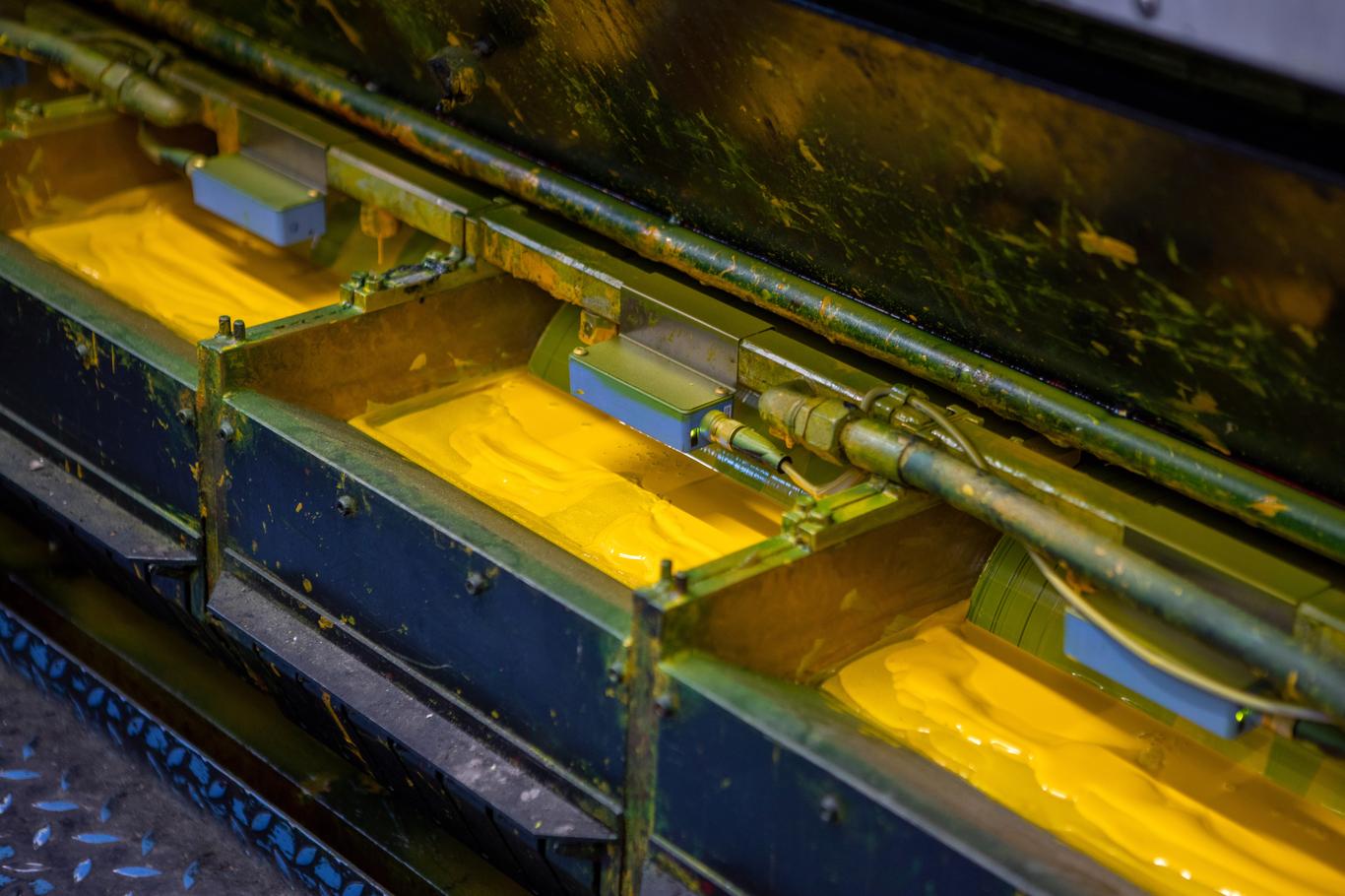
»Future-orientated adaptions:
updating tank and control systems.«
Lang-term operational security
Investment in spare parts and expertise strengthens future viability
In order to maximise machine availability, the print shop also invested in a spare parts package. Furthermore, technotrans trained the Frankenpost in-house technician, who will be responsible for the maintenance and servicing of the system in the future. This process is also made easier by the fact that the converted system is much more compact and accessible.
The printing centre is very satisfied with the progress of the project and the cooperation. "Despite the restrictions imposed by the coronavirus pandemic during the 2021 project period, technotrans realised the project quickly and reliably - everything worked perfectly."
Masterful performance in real time
Seamless installation during full operation
"There was daily coordination with the technotrans employees on site - that worked really well." Non-printing times were utilised in the best possible way and work was carried out on the printing towers that were not currently in production. "Everything went really well and didn't affect production in any way," says Beiersdorf.